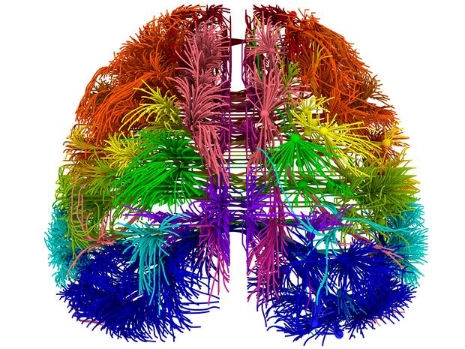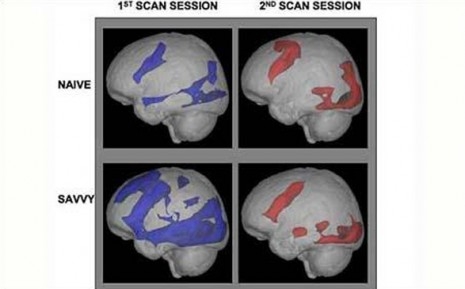
A study has revealed that artists’ brains are ‘structurally different’ from the rest of us. The small study, published in the journal NeuroImage, detailed the results of brain scans taken from 21 art students and 23 non-artists. The scans used a voxel-based morphometry to reveal that artists have more neural matter in the parts of their brain relating to visual imagery and fine motor control.
Lead author of the study, Rebecca Chamberlain from KU Leuven, Belgium, told BBC News that she was interested in finding out how artists saw the world differently.
“The people who are better at drawing really seem to have more developed structures in regions of the brain that control for fine motor performance and what we call procedural memory,” she explained.
The brain scans were accompanied by different drawing tasks, which revealed those who performed best at the tests had more grey and white matter in the motor areas of the brain. Grey matter is mainly composed of nerve cells, while white matter is responsible for communication between the grey matter regions. However, it is not clear what the increase in neural matter means, other than artists have enhanced processing in these areas due the functions involved in drawing and painting, Dr Chamberlain added:
“It falls into line with evidence that focus of expertise really does change the brain. The brain is incredibly flexible in response to training and there are huge individual differences that we are only beginning to tap into.”
One of the study’s other authors, Chris McManus from University College London, said it was difficult to know what aspect of artistic talent is innate and how much is learnt:
“We would need to do further studies where we look at teenagers and see how they develop in their drawing as they grow older - but I think [this study] has given us a handle on how we could begin to look at this.”
One scientist, not involved with the study, Ellen Winner of Boston College told BBC News that the study “put to rest the facile claims that artists use ‘the right side of their brain’ given that increased grey and white matter were found in the art group in both left and right structures of the brain”.
“Only a prospective study could get at the question of innate structural brain differences that predispose people to become visual artists, and this kind of study has not been done as it would be very difficult and very expensive to carry out.”
Via BBC News






